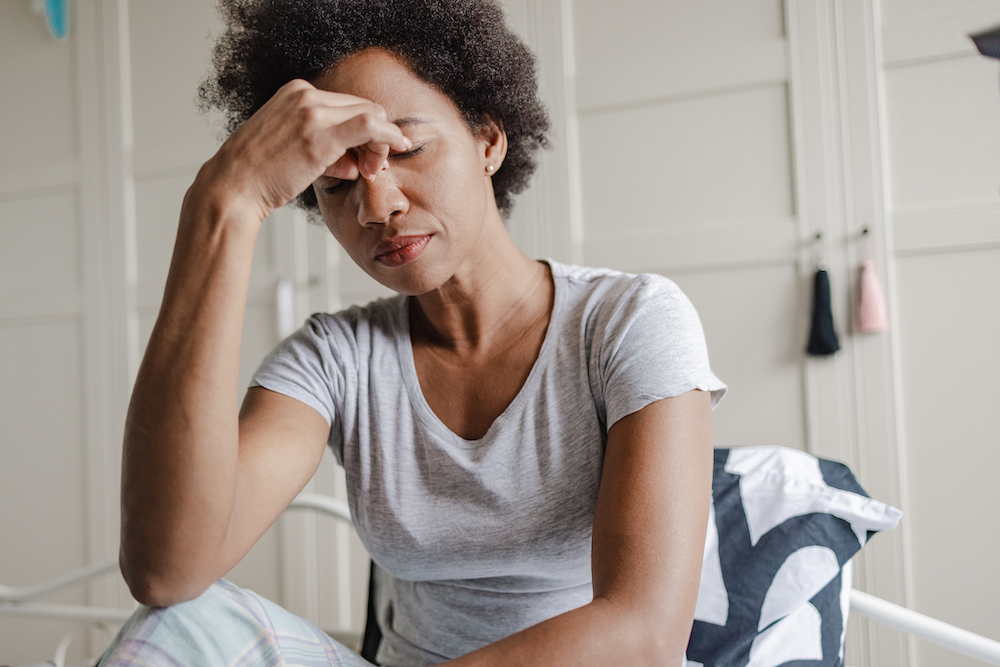MOOD SWINGS DEFINITION
Mood swings are sudden and noticeable changes in the way you feel. You may notice that you are increasingly irritable, frustrated, angry, tearful or sad, and that it can be difficult to predict when or why your mood will change.
Get fast, safe access to the right combination of menopause treatments for you by taking our free online assessment today.
Start your free online menopause assessment to see if HRT is right for you

HOW LIKELY ARE MOOD SWINGS DURING MENOPAUSE?
Mood swings are a common part of menopause. Several studies have researched how common mood swings are in menopause, although the results have been highly variable.
One Chinese study of over 6,000 women found that 37.2% with menopausal symptoms reported mood swings. A Norwegian study found this figure to be 10% and another, smaller Chinese study looking at women with premature menopause found that 73.4% reported this symptom.
This demonstrates that mood swings can be difficult to understand and quantify. There is likely to be a reasonable amount of cultural and biological variation in the way we talk about (and tolerate) mood swings.
TIPS TO HELP WITH MOOD SWINGS DURING MENOPAUSE
Check in with your doctor
Mood swings can be a normal (if difficult) part of menopause, but they can be part of a bigger mental health problem. Anxiety and depression can show themselves as panic attacks, irritability and tearfulness. Likewise, bipolar disorder can also be linked to dramatic shifts in mood. If mood swings are affecting you, check in with your doctor to be sure you have the right diagnosis.
Get some exercise
Exercise has many benefits for your general health. One study has also suggested that it could help reduce the mood swings related to menopause. Take a look at these blogs for the best exercise for menopause or to explore if exercise snacking is for you.
Think about triggers
Have you noticed anything which makes your mood swings worse? A stressful day at work, or feeling overwhelmed with chores at home? Consider keeping a log of your symptoms and think about ways you could avoid some of the worst flashpoints.
Try mindfulness
Mindfulness is helpful in a range of mental health conditions, and may help with menopausal mood swings. There is also some evidence that mind-body approaches (like yoga and tai chi) can help with menopausal symptoms.
Talk about it
Menopausal mood swings can cause friction between yourself and your family, friends and colleagues. If this is the case, try to find a quiet time to calmly discuss what is happening.
CAN HORMONE REPLACEMENT THERAPY (HRT) HELP?
Possibly.
HRT is thought to help with mood swings at menopause, and NICE recommend that it can be prescribed for low mood associated with menopause.
Likewise, HRT is a proven treatment for many other physical symptoms which may – if severe and untreated – have an understandable impact on your mood. For example, it is very difficult to keep a level head if your life is ruled by hot flushes and you’re struggling to sleep! HRT can effectively treat a number of symptoms associated with menopause including hot flushes and sleep disturbance among others.
While it can be very helpful, HRT is not suitable for everybody. Your doctor will be able to advise you about your own personal treatment options. Read more on the risks and benefits of HRT here.
It is also important to be aware that HRT is not suitable for everyone. Your doctor will be able to tell you more about the best approach for you personally.






